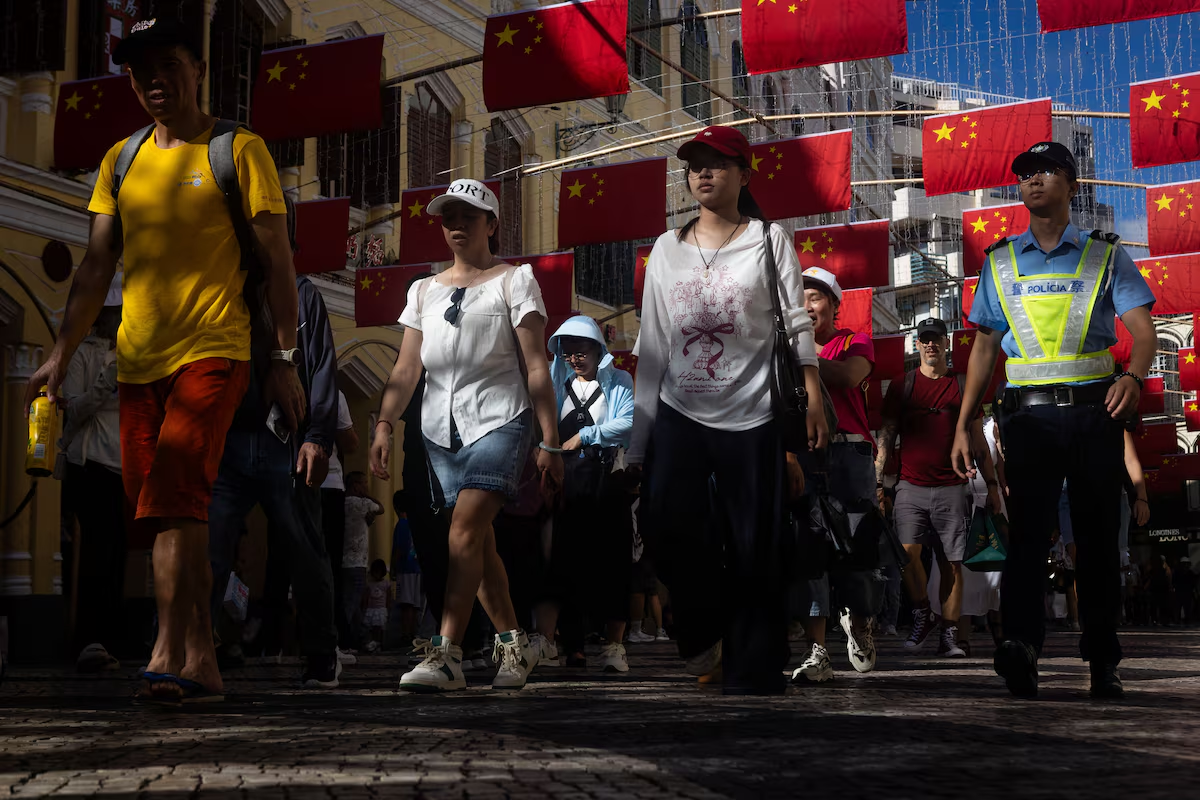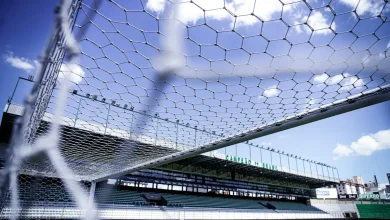Macao media outlet forced to shut down as China tightens grip on casino hub

One of Macao’s few remaining independent media outlets has shut down amid a government crackdown on civil society in the semi-autonomous Chinese territory.
In an announcement late Thursday headlined “Take care and goodbye,” All About Macao said that “in the face of increasing pressure and risks” its October issue would be its last.
In April, several of the outlet’s reporters were arrested after being barred from attending Macao’s semi-democratic Legislative Council, formerly open to the press. Earlier this month, the government revoked All About Macao’s registration as a media outlet under the territory’s publications law, saying it “no longer meets the legal conditions to engage in relevant activities.”
Government pressure and criticism has hurt the 15-year-old outlet’s ability to attract sponsors and reader donations, All About Macao said, and given it was running low on resources and seeing no let up in the campaign against it, “the team felt they had no choice but to make this difficult decision.”
Beh Lih Yi, Asia-Pacific director for the Committee to Protect Journalists, said the move was “a setback for press freedom and a highly troubling development.”
She noted the publication’s closure comes amid “a swift deterioration in the media environment in Macao,” warning “Macao is taking a page out of Beijing and Hong Kong authorities’ playbook.”
A former Portuguese colony handed over to Chinese rule in 1999, Macao never had the boisterous political scene of neighbouring Hong Kong, with the far smaller casino hub more reliant on money and visitors from mainland China.
Unlike in Hong Kong, where efforts to introduce anti-sedition legislation were defeated by mass protests in 2003, Macao adopted a similar law in early 2009, stifling the evolution of a major pro-democracy movement.
That began to change in the late 2010s however, as protests and criticism of the government became more widespread amid an economic slowdown and growing wealth gap. Activists in Hong Kong and Macao also began co-ordinating and sharing tactics, to the alarm of authorities in the latter territory.
During months of often violent anti-government unrest in Hong Kong in 2019, police in Macao moved quickly to crush solidarity protests, and after Beijing imposed draconian national security legislation on Hong Kong the following year, Macao expanded its existing laws, and also adopted Hong Kong reforms barring anyone deemed “unpatriotic” from legislative elections.
Ahead of Macanese elections this year, 12 candidates were disqualified from standing under the new rules, while in July, Au Kam San, one of Macao’s longest serving pro-democracy lawmakers, became the first person to be arrested on national security charges.
At the time, the European Union condemned Mr. Au’s arrest, saying it “adds to the existing concerns about the ongoing erosion of political pluralism and freedom of speech” in Macao.
Maya Wang, associate China director at Human Rights Watch, said Mr. Au’s arrest reflected “the broadening repression radiating from China to Hong Kong and Macao under Chinese leader Xi Jinping.”
The closure of All About Macao comes after multiple independent Hong Kong publications, including Apple Daily and Stand News, were forced to cease operations.
Two top Stand News editors were jailed in 2024, while a national security trial involving Apple Daily publisher Jimmy Lai wrapped up arguments in August, with a verdict expected in coming months. If convicted, Mr. Lai faces up to life in prison.
The crackdown on independent media in both Hong Kong and Macao comes as Radio Free Asia, which produces content in Cantonese on politically-sensitive topics, was forced to cease operations this week. The Trump administration blocked congressionally-approved funding to the private corporation as part of its efforts to gut the United States Agency for Global Media.





